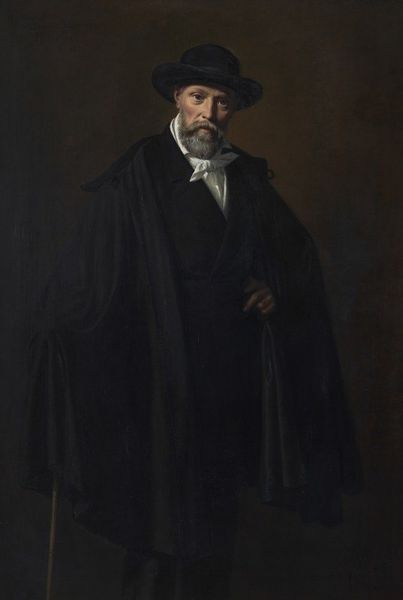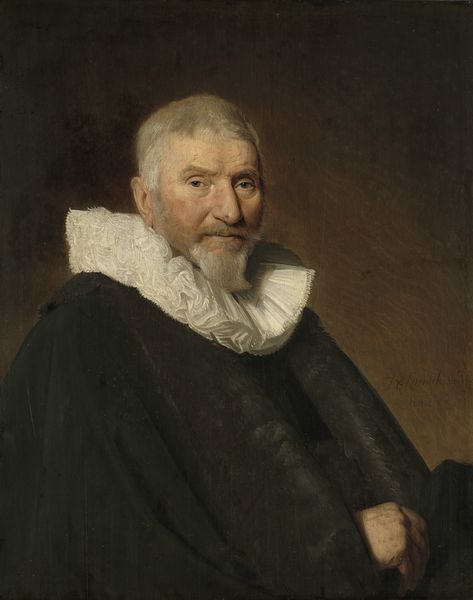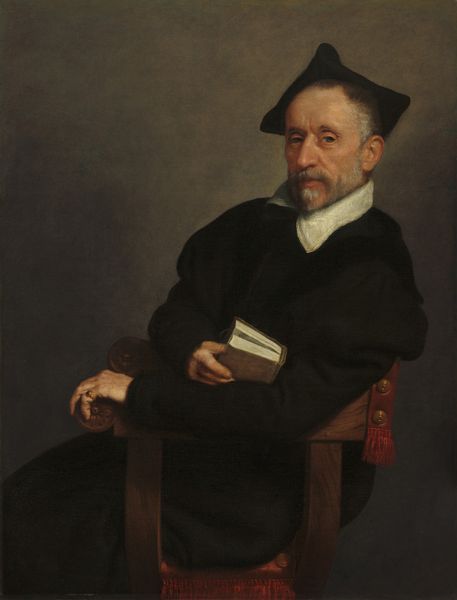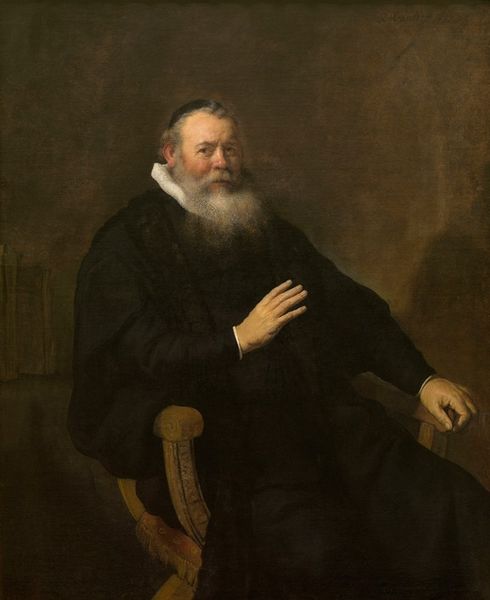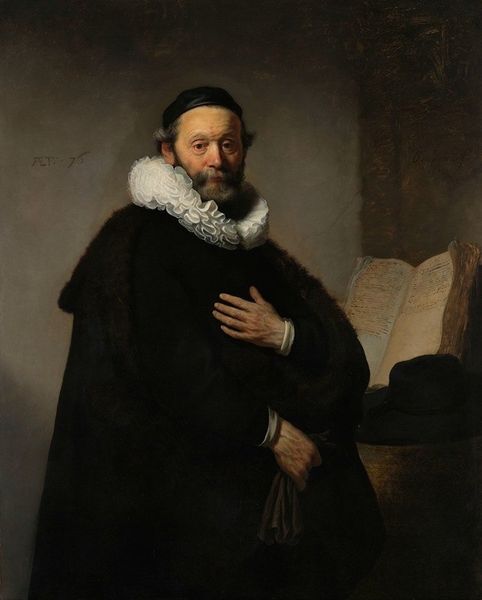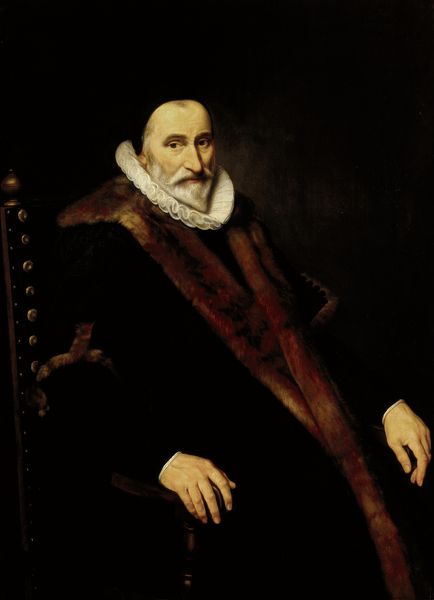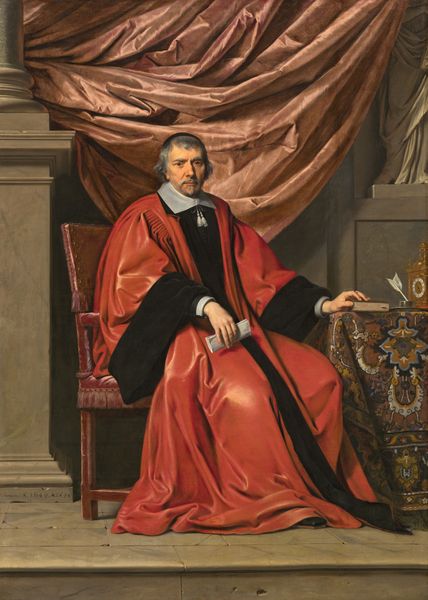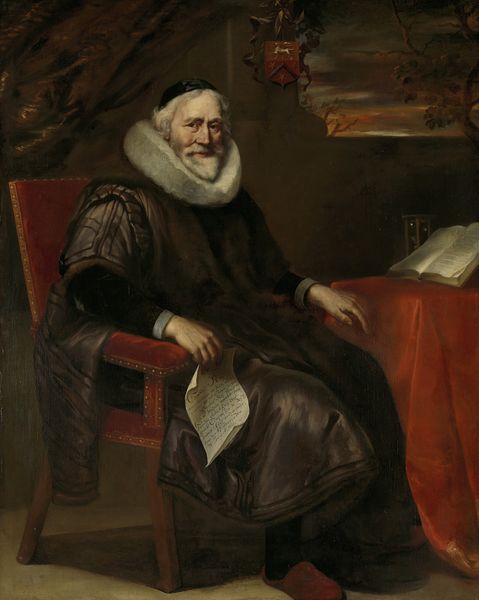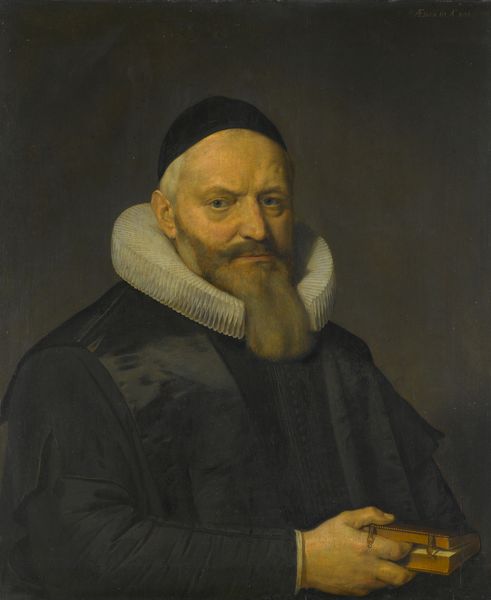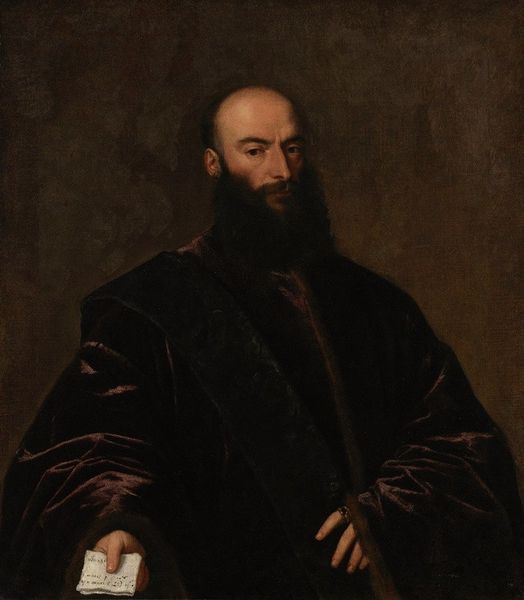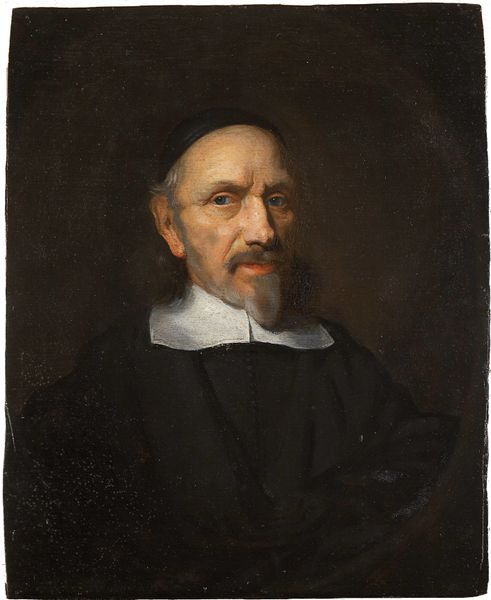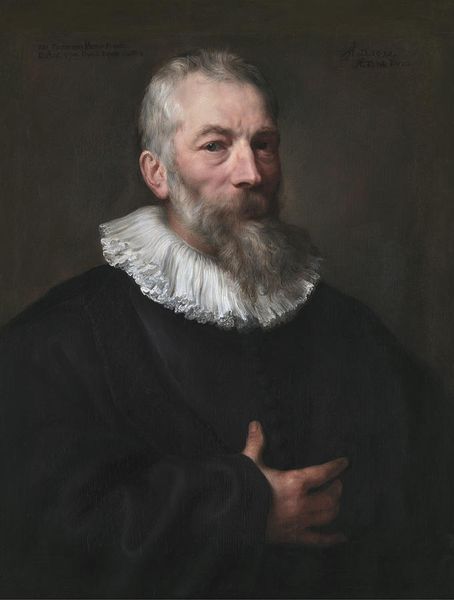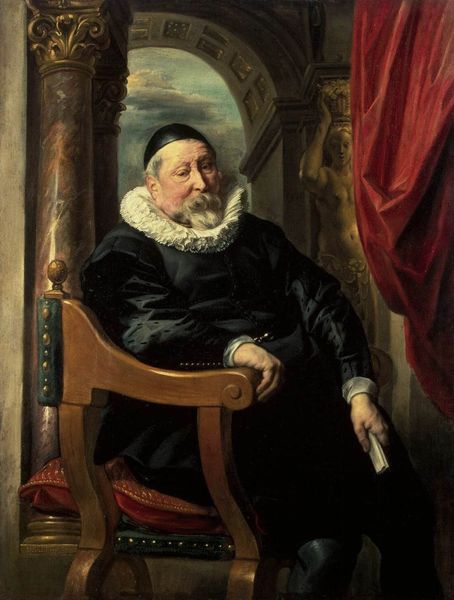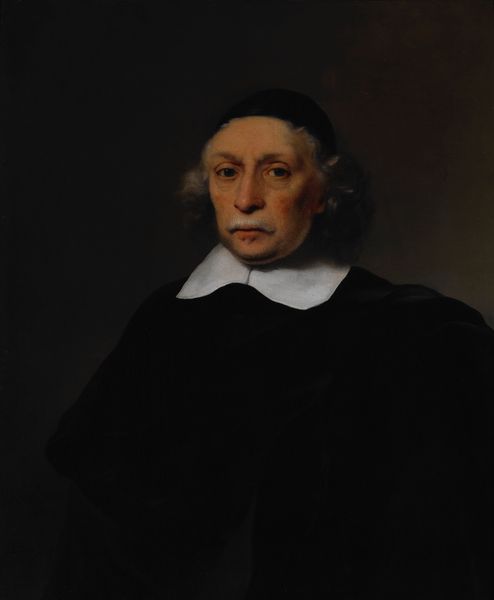
painting, oil-paint
#
portrait
#
figurative
#
baroque
#
dutch-golden-age
#
painting
#
oil-paint
#
academic-art
#
realism
Copyright: Public Domain: Artvee
Editor: Here we have Nicolaes Maes’s "Portrait of Jacob Trip," created in 1665 using oil paints. It's strikingly realistic. What strikes me is the depiction of wealth and status, but what's the broader context? What do you see in this portrait that reflects the world around it? Curator: The "Portrait of Jacob Trip" speaks volumes about the socio-political climate of the Dutch Golden Age. Notice his clothing, the luxurious fur, the chair. These are carefully constructed symbols. How do you think they functioned in Dutch society? Editor: They signal success and belonging, a sort of visual language. But isn’t there also something about how Dutch art shifted its focus? Away from royalty to merchants? Curator: Precisely! This portrait, commissioned by someone of Trip's standing, indicates a shifting power dynamic. No longer solely about aristocracy and clergy. It's about the burgeoning merchant class shaping art patronage and, in turn, how society visualized itself. He looks like a man aware of his accomplishments. But is that entirely objective, do you think? Editor: I suppose that the sitter’s wealth allows the artist to be very flattering in how he wants to be seen. This image clearly signals this patron's importance. Curator: It's fascinating how art acts as both a reflection of reality and a tool to construct identity and power, isn’t it? Understanding the societal function of art enriches our understanding. Editor: It certainly does. I'll never look at another portrait the same way again. Thanks for untangling the history woven into this image.
Comments
No comments
Be the first to comment and join the conversation on the ultimate creative platform.
